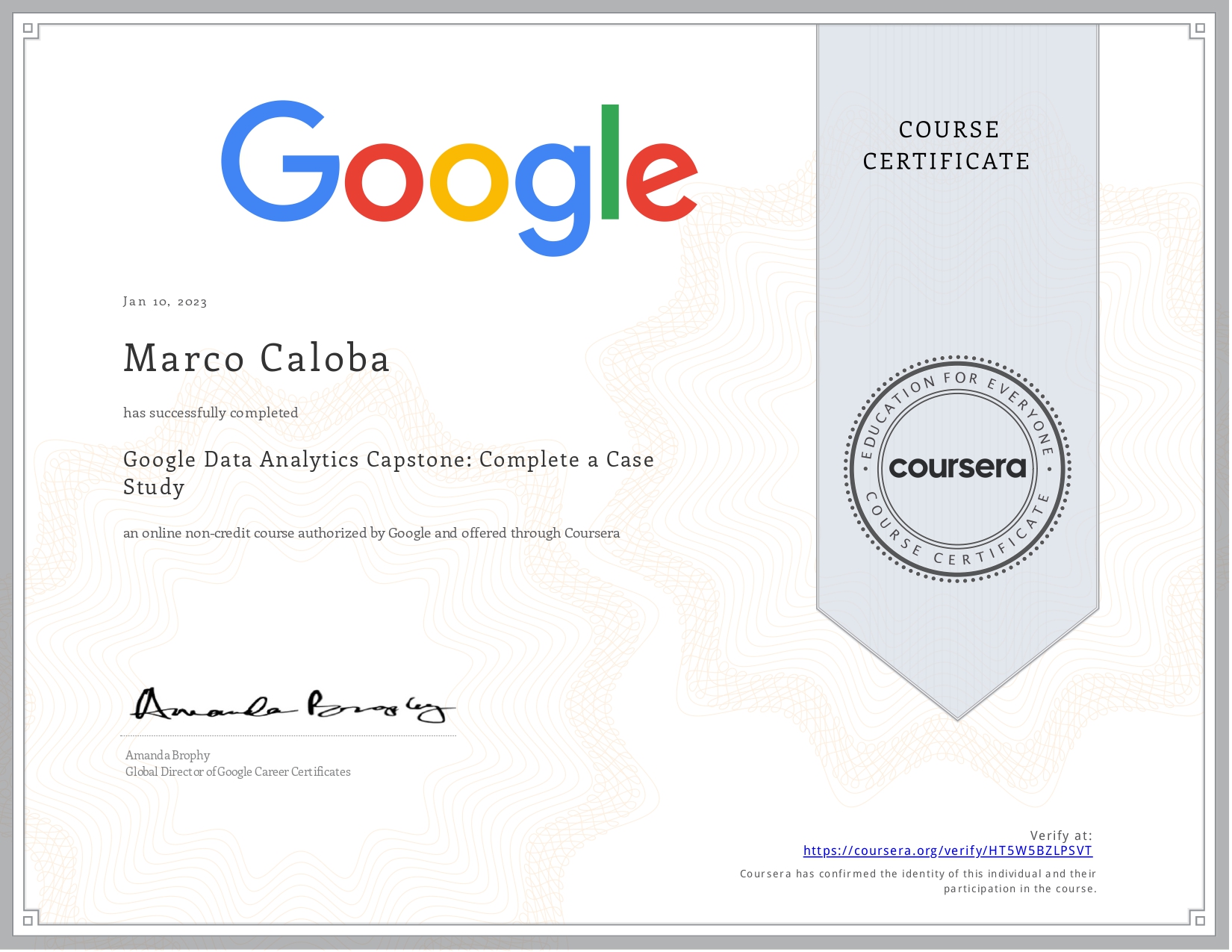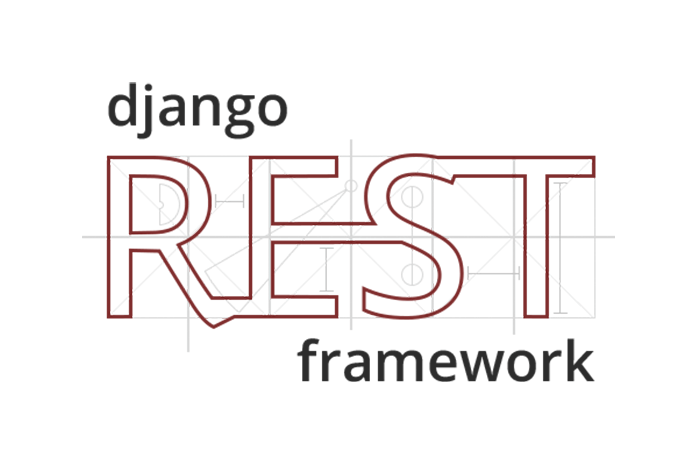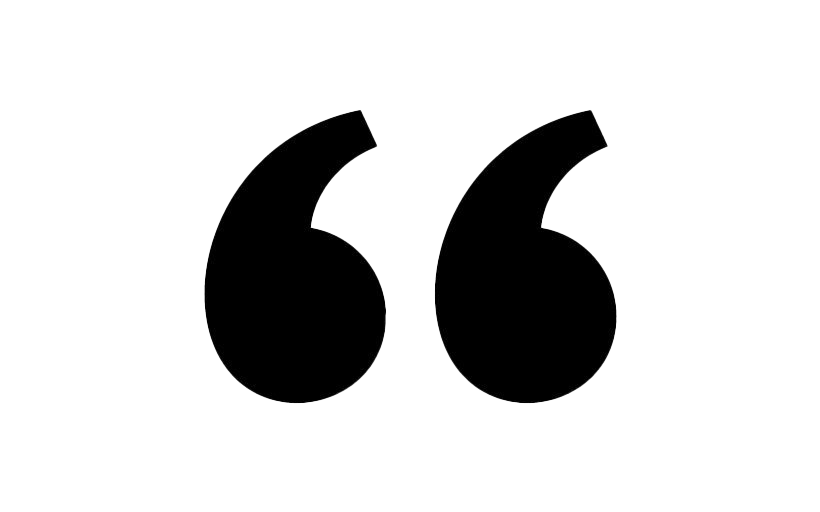
Google Data Analytics Professional Certificate - Part 8
This is part of a series of posts on the Google Data Analytics course from Coursera. It is not meant to be a review of the course nor by any means an extensive overview of its content. This is intended to be short and incorporate only the main concepts and learnings I gathered from each module. My purpose for these blog posts is mainly to consolidate what I learned from the course and also an attempt to help anyone who might be interested in reading a little bit about these subjects/this course.
In this post you will find a mix of direct content from the course, my own personal notes and also some extrapolations and additions I made wherever I felt the need to add information.
Data Analytics Capstone Project
This part of the course is focused on making a capstone project and we get two different options to do so:
Case study track 1: Working with existing questions and datasets
Case study track 2: Choosing your own questions and datasets
For the first option we get two different case studies, one for a bike sharing company, and other for a technology company. Since this part also had interesting informations about the data analyst ‘job hunt’, I decided to make a post (this one) with just that. It would get too extensive if I included the projects here as well. With that said, soon I will write a blog post about the case study for the bike sharing company, and maybe for the technology company too, if I decide to also complete that one.
Sample cases for data analysis
→ Possible phrases from job descriptions and examples of matching skills from this certificate:
-e41c88eb.png)
Sharing your case study and porfolio
→ Keep your portfolio:
Personal: Show who you are, what you are interested in, and what is important to you.
Simple: Display your work with easy navigation and without cluttered pages.
Relevant: Match your work to the skills included in job descriptions.
Presentable: Emphasize quality in the samples you show.
Unique: Showcase your own work; cite sources of content to avoid plagiarism.
Sharing your work with recruiters
→ Evaluating a portfolio:
Is there anything missing? Are you missing steps in your projects, or details in your descriptions?
If you have a website, are all the pages you need accounted for?
If you are hosting your portfolio on an existing platform, are all your projects uploaded properly?
Is there too much info?
Could any descriptions be revised for brevity?
Are there places where you include more data than you need? Could something be cut without losing the meaning or context of your project?
Is there anything you think you shouldn’t include?
Have you included references to others’ work that helped you without citing them? Can you remove them and instead include links to external work?
Are there any other components that might seem extraneous or unprofessional?
Is your portfolio hosted on the most appropriate platform?
- There are many options for a data analytics platform, such as GitHub, Kaggle, and more. Is the one you’re using (or plan on using) the most appropriate for your needs?
In the interview
→ For data analyst positions, you can think of the job interview process as having four stages: introduction, skill test, compatibility, and decision making:
- Stage 1: Introduction (resume and portfolio)
→ The goal of the introductory interview is for the recruiter to get to know you. Their goal is to find out who you are and assess your background. This is your chance to shine. Have your portfolio and resume ready and be prepared to speak concisely about your qualifications, experience, and skills using specific examples from both.
- Stage 2: The skill test interview (case study)
→ This is usually your second interview and it will often be conducted by a fellow data analyst or data engineer. In this interview, you will be given a technical assessment that will consist of testing your SQL and programming skills. You will also be asked to complete a case study or a behavioral test. Your potential employer wants to know if you can do the job that you are interviewing for and they will be focused on getting you to demonstrate your skills. Make sure you are prepared with well-formed answers and highlight your technical knowledge and problem-solving skills.
- Stage 3: The compatibility interview (optional)
→ In some cases, not all, there will be an additional interview to determine mutual compatibility between you and the company. To give you a comprehensive idea of what the work culture is like, the interviewer might include other members of the team during this round. Often the goal here is to determine if you are a good fit with the rest of the team that you will be working with. This might include individuals who will be your peers as well as the person you might be reporting to. As with the introductory interview, get ready to discuss yourself more in depth, using examples from your portfolio and resume as needed.
- Stage 4: Decision-making
→ Once your last interview concludes, it is advisable to ask about next steps as well as a timeline of when a hiring decision will be made. Take note that the process can take anywhere from 4 to 6 weeks as things get finalized and all other interviews are wrapped up. You can receive one of three responses: an offer letter, a rejection letter, or no communication. Receiving a job offer is very exciting and something you can take pride in. However, don’t feel pressured or obligated to accept the first offer you are presented. Feel free to ask for time to consider, do your research on a fair salary or benefits package, and be open-minded and willing to compromise.
What makes a great pitch:
→ There is a certain question that you will probably be asked throughout your career, especially during professional interviews: “Tell me about yourself?” This can be tricky to answer well, but the goal is to positively and accurately represent yourself using your past and present experiences and skills–essentially, you need to pitch yourself. In this reading, you will learn how to promote yourself as an effective and highly skilled data analyst in a job interview. Even if you don’t have any professional data analysis work on your resume yet, experience and skills you gained from previous work of any kind can be useful to share if you pitch it the right way.
→ To help you prepare, here are some possible questions you might be asked in an interview, including technical questions to assess specific practical knowledge and questions that require you to apply your own personal experiences.
Technical questions:
“What are your preferred tools for analysis?” This is a chance to demonstrate that you are well-versed in data analysis, with proficiency in SQL, Excel, and R programming.
“How do you maintain integrity in your data?” Reliability and accuracy are essential parts of good data analysis, and any issues with your data can have a major impact on data-driven business decisions. Be prepared to discuss the methods you use for error checking and validation.
“Do you understand different SQL functions and the roles they play?” SQL is arguably one of the most important skills for you to have as a data analyst. This is an opportunity to demonstrate your understanding of different types of SQL functions and their value or result.
Personal experience questions
“Was there a time when you took initiative during a project and what was the outcome?” This question can come in many forms with slightly different wording, but the goal is to understand your leadership abilities and how you have used them in the past.
“What was the most challenging project you have ever been faced with?” This question is usually meant to assess your problem-solving and interpersonal skills. Come to the interview prepared with several different examples of how you successfully navigated a difficult project or situation in the past.
“How would you explain a complex topic to a stakeholder who was unfamiliar with it?” This question helps your interviewer get a sense of how skilled you are at communicating effectively in high-pressure or sensitive circumstances.
“How do you cope when things don’t go according to plan?” It is important to be adaptable, especially when things don’t go the way you expected. This question provides a great opportunity for you to explain how you coped with unexpected changes and adapted quickly to a different course of action.
→ Try crafting answers to each of these questions and coming up with fitting examples for each scenario. Write the answers down and practice them until they feel natural and unrehearsed. There is no way for you to know exactly what your interviewer will ask you. But preparing some polished and professional answers to common interview questions can be incredibly helpful. Learning how to successfully pitch yourself and your skills as a data analyst takes practice. The more you practice, the more comfortable you will likely be during the actual interview, regardless of what questions you get asked.
Tips for interview success:
- Tip 1: Find connections between the job listing and your resume
→ First, re-read your resume and the job description to help you draw lines between the two. Where do they connect? Then, as you interview, include specific keywords or phrases from the job description that match skills you possess or achievements you have accomplished previously in your career.
- Tip 2: Focus on data
→ As you start to think about things you want to highlight in your interview, don’t forget to include data. This helps your interviewer understand not just your overall achievements, but how big of an impact you made. What data can you provide that tells the story of your experience in terms of the needs of this position? The “equation” we suggest including goes something like this: I accomplished X as measured by Y doing Z. Here’s an example: “I increased customer satisfaction by 22% in three months by designing a new digital onboarding process.”
→ If you don’t have access to this kind of data from a previous position, you can still indicate the scope you were accountable for and strengthen the language you use when describing your responsibilities by including action words like provided, created, developed, supported, implemented, and generated. For example: “I implemented a new scheduling system that led to 95% of the team meeting deadlines.”
- Tip 3: Look back at past work experiences
→ Review your work history. That may not sound like something you need to prepare for, but most of us have done more than we think and it’s easy to forget some of our own wins (and lessons learned from mistakes).
→ Think of examples of times you achieved something so you are prepared to answer questions like “Tell me about a time when . . .” or “How would you approach this situation . . .?"
- Tip 4: Come ready with questions
→ Next, come to the interview with your own questions, such as “What are some upcoming projects I’d be working on? What current goals is the company focused on? Can you tell me about the team I’ll be working with?” This not only shows you care about understanding the company and the position you’re applying for, but it’s also a testament to the research you’ve done by looking into the company. Besides, this is your opportunity to interview them as well.
- Bonus Tip: Practice on Interview Warmup!
Negotiating the contract
→ In certain cases, you might be asked if you have a rate or salary range in mind at the beginning of the interview process. While this question might seem straightforward, it is important to not respond with a specific number before knowing the actual number for the role because the moment you do, you will be giving up negotiating power.
→ A contract negotiation often starts with the potential employer providing you with an offer letter with general details about your compensation package. This is their initial offer and companies will often expect your request changes to the package, whether it be more money or additional benefits. This is referred to as a counter-offer. Once a counter-offer is made the potential employer will try to reconcile what you are asking for with what they initially proposed and find a middle ground if possible.
→ Always remember that negotiation is your right and it is not considered impolite. On the contrary, showing initiative in negotiating displays your confidence and tenacity to advocate for yourself. If you react with a well-researched counteroffer, it will also demonstrate that you are intelligent enough to know your value.
That’s it for the eighth and final part of the Google Data Analytics course from Coursera. You can also read the previous parts (first, second, third, fourth, fifth and sixth) of the course and soon I’ll be posting the following parts of the course. I also intend to write some more posts on other courses I took (SQL and Python so far), some detailed notes I took (and continue to take) from subjects like data visualisation and probably some short book summaries of my favourite books, with the best quotes and key concepts.
As I mentioned in the beginning, this is mainly with the goal of consolidating all topics I’m interested in learning and also having all of it well structured and put together in one place (this website). So if you find this kind of content useful and wish to read some more, you can follow me on Medium just so you know whenever I post more stuff.


